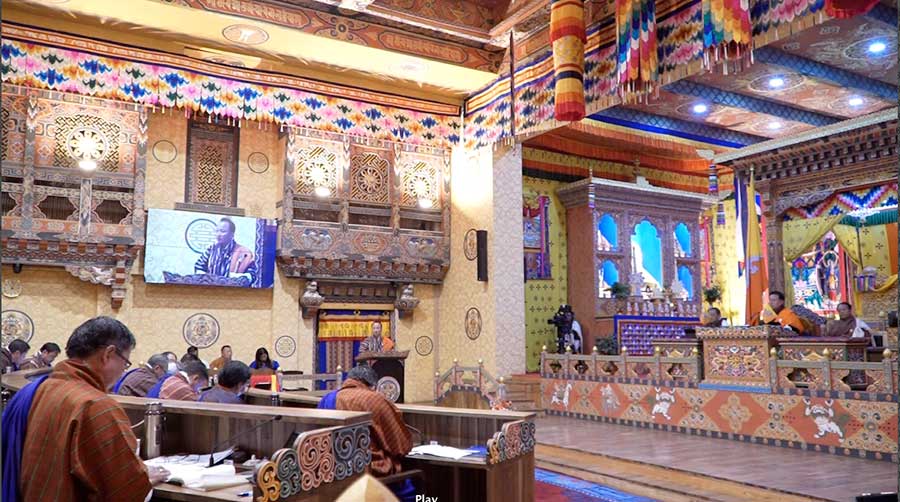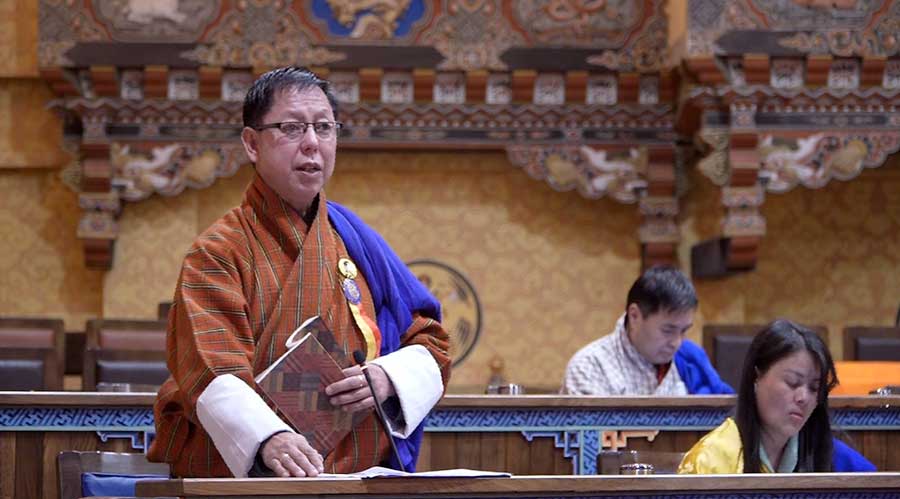
The Economic Affairs Committee of the National Council expressed their disagreement with the National Assembly’s decision to increase the sales tax on the import of Eggs and Cement as the Tax Bill of Bhutan 2022 was introduced at the National Council today. The committee rather suggested reducing the sales tax on the egg from 50 % to 10 % and reducing the sales tax on cement from 30 % to 15 %.
After the adoption of the Tax Bill of Bhutan 2022 at the National Assembly last week, the finance minister introduced the Bill. Presenting the Bill, Finance Minister Namgay Tshering said the Bill is not only expected to ease the shortage of foreign currency reserves but also promote local industries, protect and preserve the environment, and encourage and promote healthy living.
The Economic Affairs Committee of the National Council, which is reviewing the Bill, however, disagreed with the Assembly’s decision to increase the sales tax on the import of eggs. They suggested reducing the sales tax on eggs from 50 % to 10 %.

“For now, we have enough poultry farmers and we can produce eggs adequately. But we should also think about the future. What if there is an outbreak of poultry diseases and we run short of eggs? Then we will have to import eggs and during that time we might face difficulties if the sales tax is very high,” said MP Ugyen Tshering, the Chairperson of the Economic Affairs Committee of the Council.
“If we keep the sales tax on eggs at 50 % as recommended by the National Assembly then local poultry farmers will be affected the most. This is because currently, the country does not have parental stock for broiler production. As such we have to import eggs for the broiler. This means local farmers will have to pay more and bear the brunt,” added the Deputy Chairperson of the Committee, MP Anand Rai.
Meanwhile, other members of the House recommended other solutions. According to the National Council member of Haa, MP Ugyen Namgay, sticking with the National Assembly’s decision will have no harm. He, however, suggests settling for a minimal rate between 10 to 50 % if the committee thinks the Assembly’s proposal is too high.
“50% sales tax on import of egg is too much but reducing it to 10% is also seems very less. Why don’t we settle for a 30 % sales tax? As such, we can buy eggs from outside at a reasonable rate in times of disease outbreaks and other emergencies,” added MP Sangay Dorji, the council member of Chhukha.
Likewise, reminding the country faced a shortage of cement in the last few years despite having three cement factories in the country, the committee also recommended keeping the sales tax on the import of cement and other cement-related products at 15 % only.
“It will be better to reduce the sales tax on cement from 30 % to 15 %. This will help us a lot when we run short of cement and have to import it from other countries. Likewise, the premium quality cement that we use in our hydropower projects, we buy it from India and not from here. We will have to use such cement in other major infrastructures as well. We will have to think about keeping alternatives for it as well,” said the Chairperson of the Economic Affairs Committee.
“If a few people can import cement and get it for a reasonable price then it is important that we provide them with that option. Ultimately, everything boils down to house rent. If materials related to construction are expensive, house rent will increase,” added Eminent Member DashoTashi Wangyal, a member of the Committee.
The House in the end decided to settle for a rate during the final deliberations of the Bill.
Passang Dorji
Edited by Yeshi Gyaltshen








